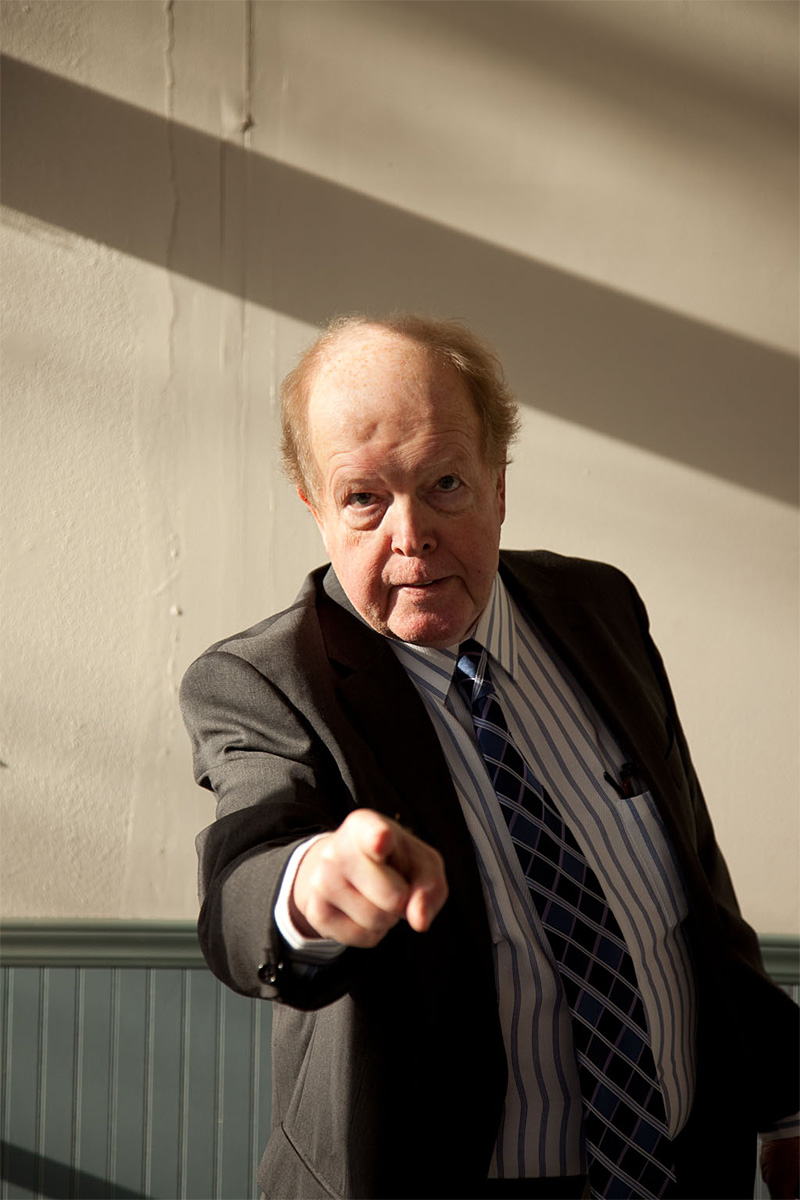If neither desperation nor emasculation are particularly pretty to watch, why the hell does David Mamet’s1982 play—which spelunks the depths of man’s impotence in the face of home-office apathy (the same kind George Clooney represents in Up in the Air)—remain so captivating? You might think it’s schadenfreude, but the real reason is because these washed-up 1980s real-estate hucksters are not so different from any of us today trying to eke out a living from dwindling resources.
While the Rep’s production meanders occasionally, Mamet’s text is an express elevator that quickly dispatches actors and audiences alike to a subterranean locus of collective inhumanity—a sort of Carlsbad Caverns without the gift shop. All the fellows who work for the unseen team of Mitch and Murray are scrambling to keep their jobs. They’re selling real estate, but as they repeatedly grouse, the leads they’re provided are worthless: deadbeats, lunatics, and blue-collar workers who live paycheck to paycheck—people, in other words, just like them. It’s the sales team’s mission to get those clients to spend their life savings on overpriced property so that the agents with the highest sales can get the really good leads to Glengarry Glen Ross. Except those are stolen in an overnight burglary, and it just might be an inside job.
John Aylward, R. Hamilton Wright, and Charles Leggett approach Mamet’s material like Little Leaguers come tournament time, and each knocks his share of speeches out of the park. Others, like Russell Hodgkinson, struggle to hold on as the show goes careening by. MJ Sieber remains one of the most elastic and fun-to-watch actors on the local scene, and his turn as office manager John Williamson (Kevin Spacey’s role in the all-star 1992 film) finds both the whipping boy and sadist within. When the play is in full swing, the performers grapple viciously for those Glengarry leads, and their ferocity is palpable. But when Mamet’s simply explicating character through a delicious yarn or mold-fuzzed war story, a torpor creeps over the cast—as if it’s a part of the play they’re obliged to stage, but not enjoy.
Critics like to speculate on how “timely” and “relevant” Mamet’s ode to avarice is, especially since our economy is in the toilet, and since employment is the final stage of recovery, not the first. Well, sure. But Glengarry is really a timeless story of greed and callow indifference. There’s nothing ’80s about being forced to choose between your meals and your morality.








